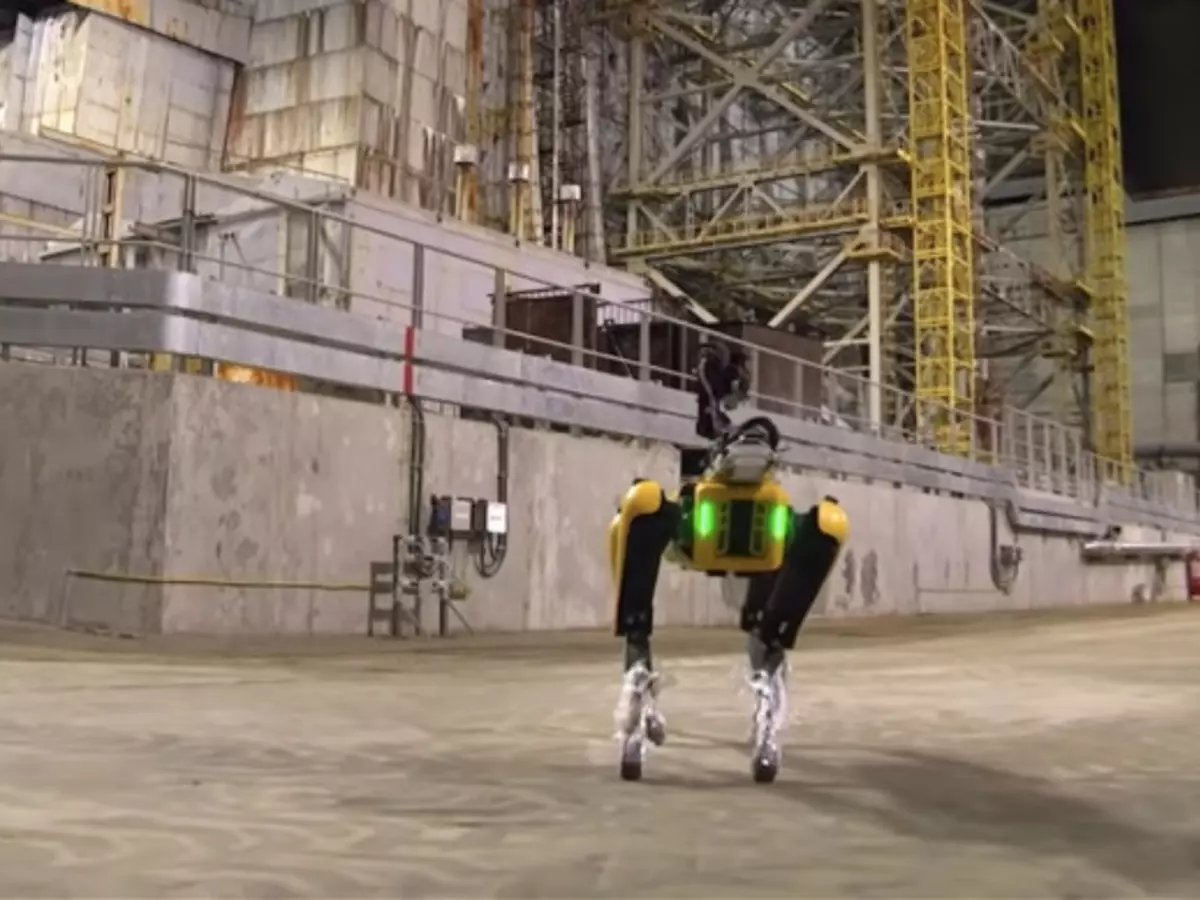Scientists Are Now Using A Robot Dog To Sniff Out Radiation Levels In Ukraine¡¯s Chernobyl
The yellow robot dog that has been designed to detect radiation was spotted working at Chernobyl¡¯s nuclear reactor number four, the State Agency of Ukraine on Exclusion Zone Management reported.

Boston Dynamics four-legged robotic dog known as ¡°Spot¡± explored the area around Chernobyl¡¯s nuclear reactor number four, the site of the world¡¯s worst nuclear accident.
 Chornobyl NPP/YouTube
Chornobyl NPP/YouTube
The Central Enterprise for Radioactive Waste Management and University of Bristol scientists, brought in four-legged robot dog named Spot, to map radiation levels in the area.
Also Read: Ukraine Says The Forest Fire Around Chernobyl Nuclear Plant Has Been Put Out Which Is Good News
The yellow robot dog that has been designed to detect radiation was spotted working at Chernobyl¡¯s nuclear reactor number four, the State Agency of Ukraine on Exclusion Zone Management, reported.
Also Read: One Catastrophe Wasn't Enough: Forest Fires Near Chernobyl Reportedly Pose High Radiation Risk
A video released by the power plant showed Spot walking around the area under a massive confinement shelter built to cover an aging sarcophagus designed to stop radiation leaking out from the fourth reactor.
The site was abandoned after the largest nuclear disaster in history, which released extreme levels of radiation into a large area near Pripyat, Ukraine.
Also Read: Mushroom-Shaped Cloud 60 Miles From Chernobyl Causes Panic. It Wasn't A Nuclear Blast Or Test
The scientists said their main aim was to test the remotely-controlled robots in the Exclusion Zone.
 Robot Dog
Robot Dog
¡°We came to the Chornobyl Exclusion Zone to use the robotic platforms for mapping the distribution of radiation, test our robotic platforms and build new networks of people,¡± David Megson-Smith, University¡¯s senior post-doctoral researcher was quoted as saying in the Ukrinform report.
Also Read: Ukraine Says The Forest Fire Around Chernobyl Nuclear Plant Has Been Put Out Which Is Good News
He added that they had worked in other nuclear plants before, but nothing like Chernobyl.
In 2019, University of Bristol researchers visited the site to carry out the first ever drone-based mapping survey of the ¡°Red Forest¡± - a four square mile wooded area that surrounds the disaster site.
